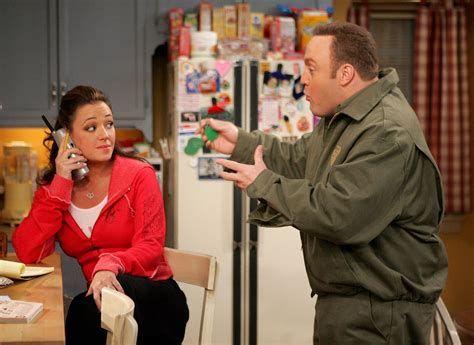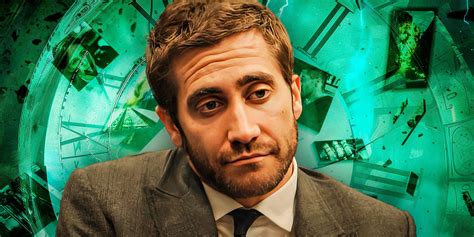
Justin Bieber’s cancellation of his “Justice” world tour reportedly cost him an estimated $90 million, and he is now facing new allegations, according to recent reports, although the specifics of these allegations are not detailed in the source material. The financial repercussions stem from refunds, lost revenue, and associated costs linked to the tour’s abrupt conclusion.
Justin Bieber’s Tour Cancellation: Financial Fallout and New Allegations
Pop superstar Justin Bieber’s decision to axe the remaining dates of his “Justice” world tour has resulted in a staggering financial loss, estimated at $90 million. While the fiscal repercussions continue to be felt, Bieber is reportedly also facing new allegations, though specific details are currently scarce. This confluence of financial burden and emerging accusations adds a layer of complexity to the situation surrounding the singer.
The “Justice” tour, initially launched with considerable fanfare, faced multiple setbacks before its ultimate cancellation. Bieber initially postponed several dates due to Ramsay Hunt syndrome, a rare neurological disorder that caused partial facial paralysis. While he attempted to resume the tour, he ultimately made the decision to cancel the remaining legs, citing his health as the primary reason.
The financial impact of such a large-scale tour cancellation is considerable. The $90 million figure encompasses a variety of factors, including ticket refunds, lost merchandise sales, venue fees, staffing costs, and other logistical expenses. Furthermore, the cancellation impacts not only Bieber but also his entire touring entourage, including musicians, dancers, technicians, and support staff, who now find themselves without work.
The new allegations, while currently unspecified in available source material, add another dimension to the situation. The absence of details surrounding these allegations invites speculation and heightened scrutiny of Bieber’s personal and professional conduct.
Financial Breakdown of the Tour Cancellation
The $90 million estimated loss from the “Justice” tour cancellation is a multifaceted financial hit. Understanding the different components that contribute to this figure provides a clearer picture of the scale of the economic impact.
-
Ticket Refunds: A significant portion of the losses comes from reimbursing fans who purchased tickets for the canceled shows. With thousands of tickets sold per show across numerous venues worldwide, the total refund amount is substantial. Ticket prices varied depending on seating location and VIP packages, further contributing to the overall cost.
-
Venue and Production Costs: Booking venues and setting up the stage production involves significant upfront investments. Canceling the tour means that these investments, which include rental fees, security personnel, stage construction, lighting, sound systems, and other technical equipment, cannot be recouped. Venues also suffer losses from anticipated concession sales and parking revenue.
-
Merchandise Sales: Concert tours often generate substantial revenue through the sale of merchandise, such as t-shirts, posters, and other memorabilia. The cancellation eliminates this revenue stream, leading to losses for both Bieber and the merchandise vendors.
-
Staff and Crew Salaries: A large touring operation involves a considerable number of employees, including musicians, dancers, backup singers, technicians, tour managers, security personnel, and various support staff. Canceling the tour means these individuals are no longer employed, and Bieber’s organization is contractually obligated to provide some form of compensation.
-
Insurance and Legal Fees: Tour insurance policies may cover some cancellation costs, but not all. Legal fees associated with the cancellation, including contract negotiations and potential lawsuits, also contribute to the financial burden.
-
Lost Future Revenue: Beyond the immediate costs, the cancellation may also impact Bieber’s future earning potential. The negative publicity surrounding the cancellation and any ensuing legal battles could potentially affect his brand image and future tour bookings.
The entertainment industry relies heavily on live performances, and tour cancellations can have significant economic repercussions, impacting not only the artist but also numerous related businesses and individuals.
Ramsay Hunt Syndrome and its Impact
Justin Bieber’s initial postponement of tour dates was attributed to Ramsay Hunt syndrome, a rare neurological disorder that occurs when the varicella-zoster virus, which also causes chickenpox and shingles, infects a nerve in the head near the ear. This virus can reactivate years after a chickenpox infection, leading to painful shingles rash and, in some cases, Ramsay Hunt syndrome.
The syndrome can cause facial paralysis, hearing loss, and vertigo. The facial paralysis can affect one side of the face, making it difficult to close one eye, smile, or make other facial expressions. In Bieber’s case, the facial paralysis was visibly evident, affecting his ability to perform.
The recovery from Ramsay Hunt syndrome can vary depending on the severity of the condition and the promptness of treatment. Treatment typically involves antiviral medications, corticosteroids, and pain relievers. Physical therapy may also be necessary to help regain facial muscle control.
The uncertainty surrounding the duration and extent of recovery likely played a role in Bieber’s ultimate decision to cancel the remaining tour dates. While he initially expressed optimism about returning to the stage, the ongoing effects of the syndrome may have made it impossible for him to meet the physical demands of a world tour.
The Broader Context of Tour Cancellations in the Music Industry
Justin Bieber’s tour cancellation is not an isolated incident in the music industry. Several high-profile artists have canceled or postponed tours in recent years due to various reasons, including health issues, logistical challenges, and personal matters.
The COVID-19 pandemic had a particularly significant impact on the touring industry, forcing numerous artists to postpone or cancel tours due to lockdowns, travel restrictions, and concerns about the safety of performers and audiences. Even after the pandemic subsided, ongoing health concerns and logistical complexities continued to disrupt touring schedules.
Mental health issues have also emerged as a significant factor in tour cancellations. The pressures of touring, combined with the demands of fame, can take a toll on artists’ mental well-being, leading to burnout, anxiety, and depression. Some artists have chosen to prioritize their mental health by canceling or postponing tours to seek treatment and recovery.
Tour cancellations can have cascading effects throughout the music industry, impacting venues, promoters, ticketing companies, and various support services. The financial losses associated with these cancellations can be substantial, highlighting the inherent risks involved in large-scale touring operations.
The Significance of the New Allegations
While details regarding the new allegations against Justin Bieber are currently unavailable, their emergence adds a layer of complexity to an already challenging situation. The nature of these allegations will undoubtedly influence public perception and could potentially impact his career and personal life.
Depending on the severity and credibility of the allegations, Bieber could face legal consequences, reputational damage, and a loss of fan support. The entertainment industry has become increasingly sensitive to issues of misconduct and accountability, and allegations of wrongdoing can have significant and lasting repercussions.
The lack of specific information surrounding the allegations invites speculation and makes it difficult to assess their potential impact. However, the mere existence of these allegations warrants attention and underscores the importance of due process and transparency. As more details emerge, the situation will undoubtedly continue to evolve.
Public Reaction and Media Coverage
The cancellation of the “Justice” tour and the emergence of new allegations have generated considerable public reaction and media coverage. Fans have expressed disappointment and concern, while industry observers have weighed in on the financial and reputational implications.
Social media platforms have become a forum for fans to express their opinions and speculate about the reasons behind the cancellation and the nature of the allegations. Media outlets have closely followed the story, providing updates and analysis of the unfolding events.
The public’s perception of Justin Bieber and his career trajectory will likely be shaped by how he responds to these challenges. Transparency, accountability, and a commitment to addressing any wrongdoing will be crucial in mitigating the potential damage.
The situation serves as a reminder of the complexities and challenges faced by high-profile artists in the entertainment industry. The pressures of fame, combined with the demands of a grueling touring schedule and the potential for legal and personal issues, can create a volatile environment.
Conclusion
Justin Bieber’s cancellation of his “Justice” world tour, resulting in an estimated $90 million loss, coupled with new, yet unspecified, allegations, represents a significant turning point in his career. The financial fallout from the tour cancellation highlights the economic risks inherent in large-scale entertainment productions. The emergence of new allegations adds another layer of complexity, potentially impacting his reputation and future prospects. The situation underscores the importance of addressing health issues, managing personal conduct, and maintaining transparency in the face of adversity. The unfolding events will undoubtedly continue to be closely watched by fans, industry observers, and the media alike.
Frequently Asked Questions (FAQ)
-
Why did Justin Bieber cancel his “Justice” tour? Justin Bieber initially postponed tour dates due to Ramsay Hunt syndrome, a neurological disorder that caused partial facial paralysis. He later canceled the remaining dates, citing his health as the primary reason.
-
How much money did Justin Bieber reportedly lose due to the tour cancellation? The estimated financial loss from the cancellation is $90 million.
-
What is Ramsay Hunt syndrome? Ramsay Hunt syndrome is a rare neurological disorder that occurs when the varicella-zoster virus, which also causes chickenpox and shingles, infects a nerve in the head near the ear. It can cause facial paralysis, hearing loss, and vertigo.
-
What factors contributed to the $90 million loss? The loss includes ticket refunds, lost merchandise sales, venue fees, staffing costs, and other logistical expenses.
-
What are the new allegations Justin Bieber is facing? The specifics of the new allegations are not detailed in the source material.
-
How does a tour cancellation affect the people who work on the tour? Canceling a tour means musicians, dancers, backup singers, technicians, tour managers, security personnel, and various support staff are no longer employed, impacting their livelihoods.
-
What role did COVID-19 play in tour cancellations in the music industry? The COVID-19 pandemic had a significant impact, forcing numerous artists to postpone or cancel tours due to lockdowns, travel restrictions, and health concerns.
-
Why is it important for artists to prioritize their mental health? The pressures of touring and fame can take a toll on artists’ mental well-being, leading to burnout, anxiety, and depression. Prioritizing mental health allows them to seek treatment and maintain a healthy work-life balance.
-
What legal consequences could Justin Bieber face depending on the allegations? Depending on the severity and credibility of the allegations, Bieber could face legal consequences, reputational damage, and a loss of fan support.
-
What steps can artists take to mitigate reputational damage when facing allegations? Transparency, accountability, and a commitment to addressing any wrongdoing are crucial in mitigating potential damage.
-
How do tour insurance policies factor into cancellation costs? Tour insurance policies may cover some cancellation costs, but not all, and the coverage depends on the specifics of the policy and the reasons for cancellation.
-
What is the varicella-zoster virus? The varicella-zoster virus causes chickenpox and shingles. It can reactivate years after a chickenpox infection, leading to painful shingles rash and, in some cases, Ramsay Hunt syndrome.
-
How is Ramsay Hunt syndrome treated? Treatment typically involves antiviral medications, corticosteroids, and pain relievers. Physical therapy may also be necessary to help regain facial muscle control.
-
What are some potential long-term effects of Ramsay Hunt syndrome? Potential long-term effects include permanent facial paralysis, hearing loss, and chronic pain.
-
Are tour cancellations a common occurrence in the music industry? Tour cancellations are not uncommon and can occur for various reasons, including health issues, logistical challenges, and personal matters.
-
How does the public perceive tour cancellations by artists? Public perception can vary depending on the reasons for the cancellation. Fans often express disappointment but may also be understanding if the cancellation is due to health issues or other valid reasons.
-
How do ticketing companies handle refunds for canceled shows? Ticketing companies typically offer refunds for canceled shows, although the specific refund policies may vary.
-
What role do promoters play in organizing and managing tours? Promoters are responsible for organizing and managing tours, including booking venues, marketing the shows, and coordinating logistics.
-
What are some of the logistical challenges involved in organizing a world tour? Logistical challenges include coordinating travel arrangements, securing venues, managing equipment and personnel, and complying with local regulations.
-
How can the entertainment industry balance the demands of touring with the well-being of artists? The industry can promote better work-life balance, provide access to mental health resources, and create a supportive environment for artists.
-
What impact does canceling a tour have on smaller businesses that depend on live events? Tour cancellations can significantly affect smaller businesses, such as local restaurants, hotels, and transportation services, that rely on the influx of concertgoers.
-
How has social media influenced the way tour cancellations are handled and perceived? Social media allows artists to communicate directly with fans and address concerns, but it also amplifies both positive and negative reactions to tour cancellations.
-
What are the legal considerations when an artist cancels a tour? Legal considerations include contractual obligations with venues, promoters, and other parties, as well as potential liabilities for breach of contract.
-
How do artists typically announce and communicate tour cancellations to their fans? Artists typically announce cancellations through social media, press releases, and official statements, often expressing regret and providing explanations for the decision.
-
What resources are available to artists struggling with mental health issues related to touring? Resources include therapists, counselors, support groups, and mental health organizations specializing in the needs of performers.









